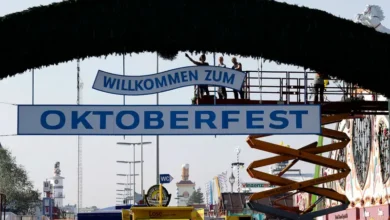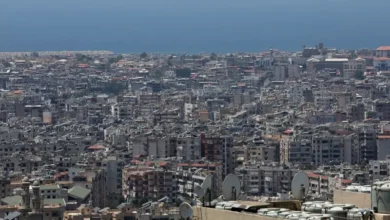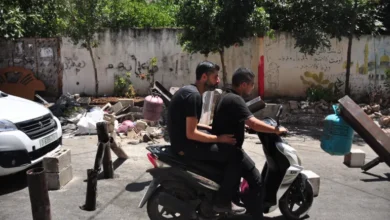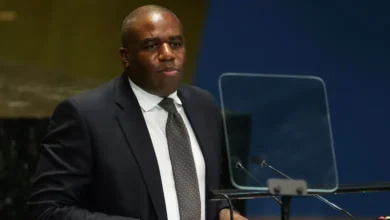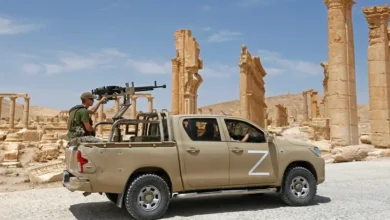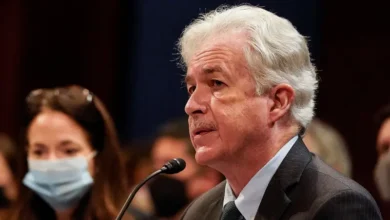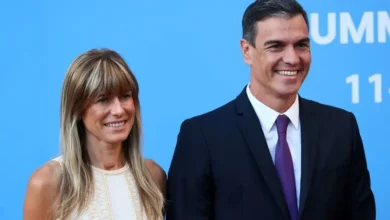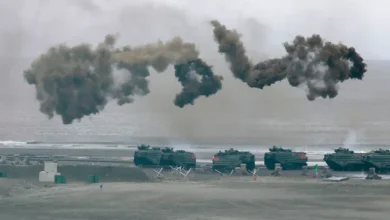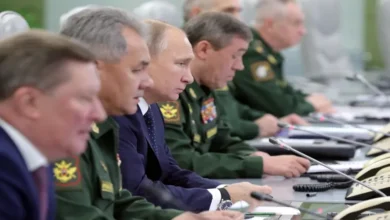Israel flattened my home, killed my family. I still lit a candle for 2024
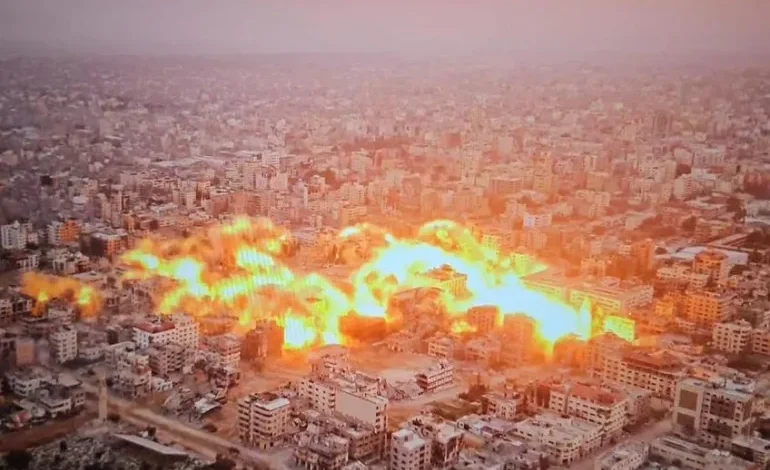
As we bid farewell to 2023 and welcome 2024, the tragic scenes of ongoing war persist in Gaza.
Who could have anticipated such widespread devastation, loss of life, pain and tears? Who could have foreseen the displacement, expulsion, intimidation and suffering? Who could have predicted the hunger, thirst, poverty and drought?
Since the beginning of the war on October 7, all the horrors and nightmares seem to have converged on our lives in the Gaza Strip.
Every day, while reporting from Al-Aqsa Hospital alongside my brother who accompanies me, we’ve struggled to find fitting names for this war amid the countless harrowing stories we encounter.
Yet, no single descriptor seems adequate. An unprecedented war? A shameless war? A war against infants, hospitals and places of worship? Amid the daily horrors, we agree on one term: genocide.
As we welcome the New Year, like many Palestinians in Gaza, I find myself without a home, displaced with my family to the south, along with hundreds of thousands, grappling with the constant threat of yet more forced displacement.
At the war’s onset, my apartment and the building I lived in suffered severe damage from a nearby bombing. I moved to my parents’ home, which was then damaged by a bombing in its vicinity. We then sought refuge in my husband’s family’s home, only to receive evacuation orders from the Israeli army to move to the south.
Enduring times of bombing, terror and relentless efforts to secure life’s essentials, our singular dream became survival and a return to our homes in the north.
I clung to the hope that my damaged house stood standing and resilient, merely requiring repair and reconstruction for me to inhabit it again.
Yet, a few days ago, on December 21, Israel declared the complete demolition of the Palestine Mosque Square, where my small house had been. Upon seeing the images, it was time to accept the painful truth: our entire residential building had been reduced to rubble.
It was a heart-wrenching moment. One cannot grieve over mere stones amid the larger tragedy of victims, the deceased, annihilated families, and charred children’s bodies. Yet, as a human being with emotions, I mourn the years of effort and the life I built — all gone.
Like millions of other Palestinians from Gaza, if we ever return to the north, we return homeless.
My cosy apartment, my children’s memories, my belongings—all crushed beneath the rubble.
How many times must we restart our lives from scratch? Who will compensate for the lost years and efforts spent securing life’s basics?
The war has made us see our siege as a paradise, the deterioration of our conditions as a bliss in the past, and the previous restrictions on our lives as a dream we long for.
We wrote about the Nakba, never imagining that we would live it. Now we endure conditions harsher than our ancestors described.
Sleeping in the streets and tents, queuing for flour and water, living in darkness without electricity, hot water, or basic amenities—we crave salt, sugar, rice, and clean water.
My daughter yearns for chocolates, chips, and candies, while we navigate empty supermarket shelves.
Searching for infant formula has become a futile quest. We change milk types for our children, tears in their eyes, as we cry for necessities. Infants born in tents receive water and sugar due to the unavailability of milk.
Amid this struggle for life’s details, the war has humiliated us. It has stripped away our humanity, dignity and self-esteem. We are left homeless, barefoot and exposed in streets and tents.
In the face of such adversity, we find ourselves alone, bearing witness to a battle we cannot match. Gaza lacks the resources of a superpower, unable to withstand the onslaught of massive military equipment funded by the United States.
I have seen extravagance in life, luxury and money spending, but I did not expect to see extravagance in the use of weapons that destroy stones and people.
The lavish use of US weapons in Gaza—artillery, planes, tanks, quadcopters, naval boats—comes at the cost of innocent lives, the majority of whom are women and children.
As we close the year, tending to wounds and bidding farewell to loved ones, there is no time for proper goodbyes or tears.
Three weeks ago, my aunt, her family, and grandchildren were killed when their six-storey home was bombed. Forty-five people were killed and their bodies remained trapped under the rubble for days.
My father and I mourned while offering condolences to my only surviving cousin, who was displaced with her husband to Deir el-Balah.
She told us that no one was able to get them out because of the presence of tanks and snipers around the place. Neighbours told them that they heard some of them alive screaming and pleading for help from under the rubble, but they could not help them. Then these voices eventually faded away after a few days.
This is how lives end in Gaza. This is how people are killed. They get bombed in homes, left to bleed to death under rubble, without rescue. Pain eats away at the hearts of their loved ones who watch their deaths helplessly.
The wider world’s inability to stop this highlights how little our lives are valued. Our death and killing, our spilled blood, have become permissible.
While the world was illuminated to celebrate the New Year last night, I lit a candle for my five-month-old child, amidst the darkness of continuous bombings around.
Our only wish is survival, an end to the war. Farewell to a sorrowful and painful year. Long live Gaza.
